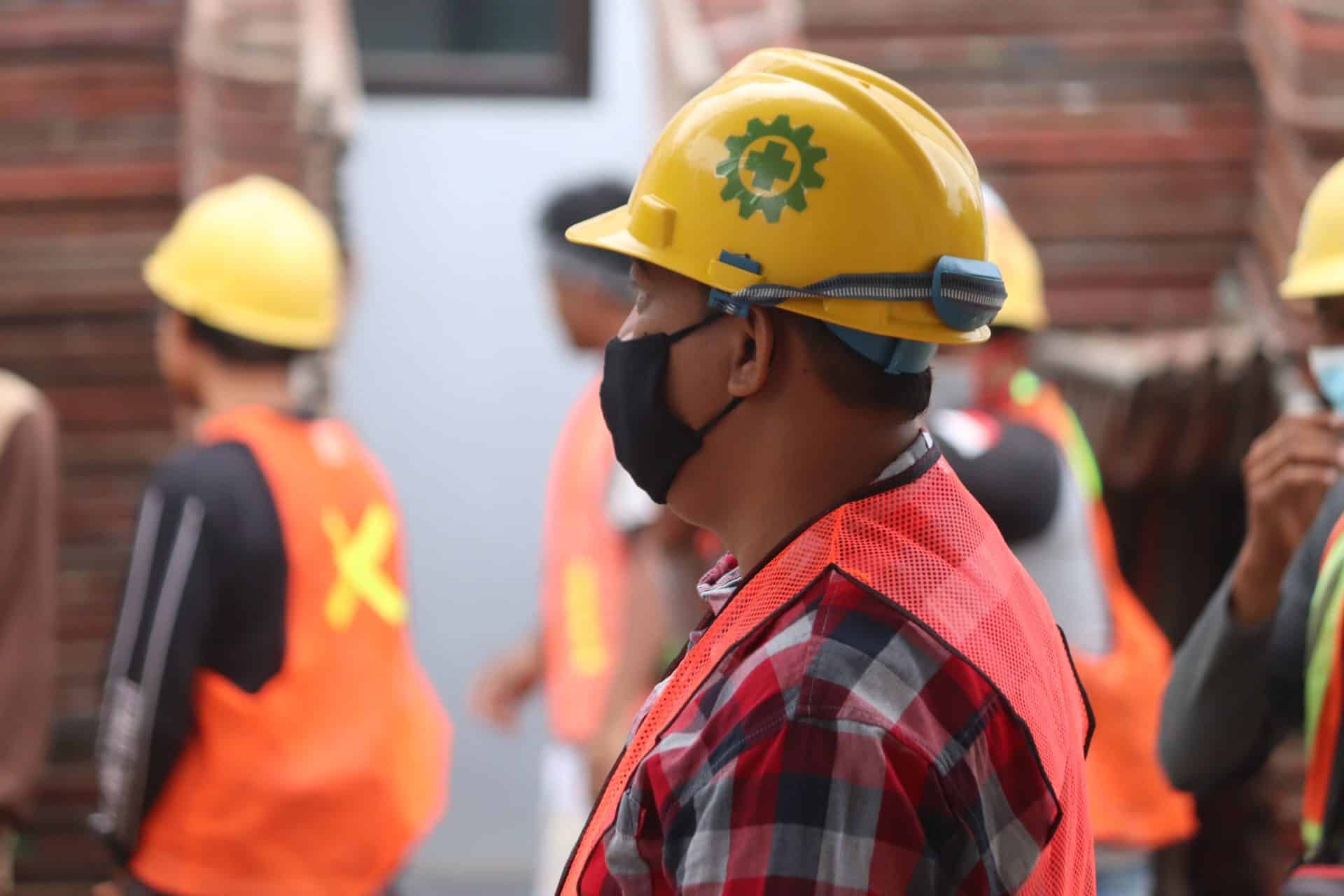Have you ever looked at a job posting for a safety officer and wondered what the role is, or if a safety officer is a good job. Safety officers play an important role in many industries, and they offer a variety of benefits both in professional development and opportunities. If you’re wondering what a safety officer is, what the benefits are, and whether or not a safety officer is the job for you, read on!
What is a Safety Officer?
Safety officers are referred to as multiple titles: safety manager, safety specialist, occupational health and safety officer or specialist, and others. Although there are many names to refer to a safety officer, they all refer to the same role. A safety officer provides protocols and recommendations to ensure that a jobsite is a safe place to work. Not only does a safety officer provide preemptive solutions and requirements to reduce any safety risks, but the safety officer also is responsible for addressing any safety issues after an incident.
Safety officers are responsible for training employees on all safety requirements of the company, visiting job sites and areas where workers are present to ensure all safety protocols are in place, and ensuring that all safety paperwork for a company is filled out and filed correctly. At its very core, a safety officer’s job is to keep workplaces as safe as possible.

Why are Safety Officers Needed on Job Sites?
Safety officers are important to have on job sites as they hold people accountable. Without a safety officer, there’s no one training new employees on important safety regulations, no one ensuring that equipment is maintained properly and safe to use, and no extra set of eyes on job sites ensuring nothing gets missed. It’s easy to see a safety officer as someone who requires Field Level Hazard Assessments and sits in an office doing nothing all day, but a good safety officer spends time on the jobs site and ensures everyone is being safe.
Safety officers also play an important legal role in companies. A safety officer is the figurehead and spokesperson of a company if there are any safety issues or incidents. That means safety officers need to be prepared and knowledgeable about OHS regulations, protocols for incident reporting, and how to act if a safety issue arises. If an employee is hurt at work, a safety officer would also work on their WCB claim.
Benefits of Being a Safety Officer:
There are many benefits to being a safety officer. If you’re considering a job in health and safety, here are some of the primary reasons a safety officer position is a good job.
1. Safety Officer Positions are In High Demand
Many industries hire for safety officer positions, from the energy sector to construction to the healthcare sector, safety officers are important for every industry. Not only that, but the government has developed many OHS guidelines that need to be followed, so it’s important for businesses to have personnel who know how to implement safety regulations. When it comes to OHS roles, there is a steady incline in demand.
2. It’s Simple to Become Certified in Health and Safety
You can become certified for Occupational Health and Safety quickly and quite easily. There are online learning programs as well as in-person programs that can be completed in as little as 12 months! You can also get full diplomas in a two-year program at many polytechnic institutions, including NAIT.
3. The Work is Versatile
Being a safety officer is a great job for people who don’t want a ton of repetitive work. There will always be administrative paperwork and other repetitive tasks; however, as a safety officer you also get to perform site visits, do safety inspections, train new employees, and help your company put together their safety programs. A safety officer is a fantastic opportunity for people who like to have variety in their day-to-day work.
4. Competitive Salaries
Safety officer roles have incredibly competitive salaries where you can make a significant amount of money without the need for an advanced degree. In Canada, the median wage for health and safety officers is $78,000 a year, with entry level positions making well above minimum wage.
5. Your Work is Meaningful and Important
One of the biggest benefits of being a safety officer is that the work you do truly matters. Every day you get to go to work knowing you’re helping keep your coworkers and those who work on your job sites safe. Knowing that your day job makes a difference can be a huge deciding factor in whether or not you like your job.
6. You Can Continuously Learn New Things
As an OHS professional, it’s important to constantly stay up to date with new regulations and training methods. When it comes to being a safety officer, you need to learn new safety methods and procedures, keep up with governmental changes, and ensure that what you implement is always legal and using the newest safety requirements. This is a fantastic role for those who like to learn and grow new skills!

Skills to Be a Safety Officer
As a safety officer, it’s important to be a well-rounded employee. You need a variety of skills to ensure you can get your job done. This includes:
- The ability to read and understand government policies
- The ability to implement new safety routines and procedures
- Communication skills with coworkers as well as regulatory bodies
- The ability to influence and lead others
- Conflict resolution skills
Working as a safety officer is a balance of hard skills in how occupational health and safety works as well as the soft skills in communicating and teaching OHS to others.
Work with Alexander Business Centre
Safety is incredibly important for the Alexander Business Centre. We have multiple divisions in the construction industry, and our safety division ensures that all of our team members are able to work safely. If you’re interested in learning more about safety opportunities with ABC, please contact us!

